[PATREON UNLOCK] Update Patch - October 2025
Update Patch News Roundup (06/10/25)
Welcome back to a very spooky Update Patch. This week, we have bizarre studio acquisitions, a frustrating Discord breach, and the success of Digimon Story: Time Stranger.
EA Goes Private In $55 Billion Deal With Bin Salman And Jared Kushner
EA has announced that it is being acquired by an investor consortium of PIF, Silver Lake, and Affinity Partners for $55 billion. The deal is set to close in 2027; current CEO Andrew Wilson is set to remain in charge. “Our creative and passionate teams at EA have delivered extraordinary experiences for hundreds of millions of fans,” he says. “This moment is a powerful recognition of their remarkable work.”
Despite Wilson’s words, there are valid reasons to be concerned about this deal. PIF is run by Saudi Arabia's Crown Prince Mohammed bin Salman, who presided over the murder of Washington Post journalist Jamal Khashoggi in Istanbul. "We have found that the [PIF] has contributed to, and is responsible for, human rights abuses," said researcher Joey Shea in an interview with Eurogamer. Affinity Partners, on the other hand, is run by Donald Trump’s son-in-law, Jared Kushner.
This was a 20 billion dollar leveraged buy-out. If you are unfamiliar with what a leveraged buy-out is, it's what happened to Toys R’ Us, and it means that EA’s outlook isn’t looking good. This consortium has borrowed the $20bn of funds for this buyout, but instead of taking on that debt themselves, the debt is saddled on the company they now own.
On top of this, it is being reported by Bloomberg that this debt will be rated single-B. If you have watched The Big Short recently, you might already know this, but single-B-rated debt means that the stock market views this as a “jjunk” loan, or high-risk and unlikely to be paid back in full. The result is that it has an extremely high interest rate that EA will have to pay back on top of balancing its own books.
What does all this mean in human terms? PIF and Jared Kushner just bought one of the last remaining major triple-A publishers in North America without having to spend their own money. They have saddled the company with an enormous amount of debt that likely cannot be repaid. The first lever to be pulled to help pay back this debt will likely be to cut costs through massive layoffs. This is all while they give themselves bonuses from EA’s revenue to celebrate putting together such a great deal.
In the best-case scenario, EA will continue to be a conservative company that specialises in annual sports games and shooters. In the worst case, EA may be toast. No matter which way things go, though, BioWare will be in trouble.
Microsoft Hikes Game Pass Prices, Teases Ad-Supported Cloud Gaming
Per GameDeveloper, Microsoft is reworking its Game Pass subscription service. “Core” and “Standard” have been renamed “Essential” and “Premium.” Meanwhile, the company is increasing the price of “Ultimate” by 50% to $29.99 per month. The price of PC Game Pass (reports The Verge) is also increasing to $16.49 per month. Additionally, Microsoft is phasing out 10% discounts on DLC for Ultimate subscribers in favor of a rewards program.
The studio is also testing an ad-supported version of Xbox Cloud Gaming, which would (says The Verge) allow people to play certain titles without needing to subscribe to Game Pass. In exchange, players would be required to watch a set number of ads for every session.
As Microsoft struggles to define its identity in the games market, protestors are holding its feet to the fire for enabling the ongoing genocide in Gaza. Most recently, the company terminated a collaboration with Unit 8200, collecting “millions of Palestinian civilian phone calls made each day in Gaza and the West Bank.”
Ubisoft Launches Vantage Studios With The Help Of Tencent Investment
Previously, in March, Ubisoft announced “a new subsidiary for some of its biggest and most battle-tested franchises” (reports Game Developer) thanks to a $1.25 billion investment from the conglomerate Tencent. Now, Ubisoft has announced the subsidiary’s name: “Vantage Studios,” which will lead its Assassin’s Creed, Far Cry, and Rainbow Six franchises. A press release claims that staff from “Ubisoft's studios in Montréal, Quebec, Sherbrooke, Saguenay, Barcelona, and Sofia” have been tapped for this new effort.
Discord Breach Compromises Billing Information, Passport Photos
The popular chat program Discord announced in a recent post that an “unauthorized party” gained access to user data through a third-party customer service site. This data includes emails, “limited billing information”, and IP addresses. Worse, though, is that “a small number of government-ID images” like passports and driver’s licenses were also a part of the data set. These were uploaded by users contesting age determination.
While Discord insists that full credit card numbers and passwords remain untouched, the leak of government-ID images is worrying. It’s also an unfortunate consequence of worsening censorship laws in the US and UK. The more sensitive information that users are required to upload to prove their identities, the more vulnerable they are to bad actors harvesting that data for their own purposes.
Legendary Developer Rebecca Heineman Launches GoFundMe for Cancer Treatment
Rebecca Heineman is an experienced game developer and programmer who has worked in the industry since she was 16 years old. Aside from co-founding Interplay and designing The Bard’s Tale III, she helped port various games from Windows to Macintosh, including Jazz Jackrabbit 2, Out of This World, and Baldur’s Gate II. Since then, she’s headed multiple companies, including Contraband Entertainment and Olde Sküül; served as senior software architect at Bloomberg L.P. and Amazon; and somehow also found time to write a webcomic, Sailor Ranko, for fifteen years.
Now Heineman is crowdfunding $50,000 for cancer treatment via GoFundMe. “Insurance is helping,” she says, “but some of my treatment [is] out of network so I’m getting huge bills.” Why are developers still having to rely on the kindness of strangers for help, instead of being supported monetarily by the medium they helped build? What are we, the superhero comics industry? Regardless, Heineman can certainly use our help.
ZA/UM UK Employees Form Workers Alliance
Following the release of Disco Elysium, studio ZA/UM has gone through a period of strife, with key writers, developers, and artists leaving (or being fired). Some have started their own studios, including Summer Eternal, Longdue Games, Dark Math Games, and Red Info. ZA/UM, meanwhile, continues to chug along. Now, its workers have announced a new union, titled the ZA/UM Workers Alliance. (GamesIndustry has the details.) Keep in mind, though, that this union only represents “a subset of UK-based employees at the company.”
Digimon Story: Time Stranger Digivolves Into Steam Charts Contender
Despite the cult success of the Cyber Sleuth titles, the wider Digimon Story franchise has never attracted the same press as monster competitors like Pokemon. So it’s significant that its newest release, Time Stranger, hit a peak of 84,458 people playing the game at once on Steam. That’s just about a thousand below Metaphor ReFantazio, which is pretty wild! On SteamDB’s “most played” JRPG chart, Time Stranger beats out many critically acclaimed games available on PC, such as Like a Dragon: Infinite Wealth, FINAL FANTASY VII REBIRTH, and Persona 5 Royal.
Keep in mind that the latter games are available on other consoles as well, meaning that the Steam charts can’t represent the whole truth. That said, it’s clear that Digimon Story: Time Stranger is doing pretty well right now. With the recent premiere of Digimon BEATBREAK in the anime sphere, could we be in the middle of a DigiRenaissance? Only time will tell; I’ve been burned before…
Stray Children Set For October 30th Release
Onion Games, an independent games studio run by talent responsible for cult classics Moon: Remix RPG Adventure and Chulip, announced that its next title Stray Children, is set for release on October 30th, 2025. The game is described as “a bittersweet fairy tale RPG” influenced not just by Moon but (perhaps) by the 2015 classic Undertale. Here’s hoping that the game finds an audience! Curious folks seeking to investigate Onion Games’s modern work should check out Dandy Dungeon and Black Bird.
Team FOLON Spices Up Fallout London With “Rabbit And Pork” DLC
Modders have always showered love on the Fallout series, even if its current stewards at Bethesda have been slow to produce new titles. One of the more ambitious recent mods for the series (specifically, Fallout 4) is Fallout London, a giant new adventure set in Britain. Now, its developers, Team FOLON, have released the first DLC update, “Rabbit and Pork.” The trailer teases new weapons and NPCs as well as some weird and grimy environments. Most important, though, are the “thousands of bug fixes and improvements.” Fallout London’s original release crashed frequently, so hopefully this update cleans that up.
Dead Of The Brain 2 Rises From The Grave
Fellow video game weirdos may remember Dead of the Brain, a super gory horror adventure for the PC-98 that was translated into English by fans back in 2023. Two years later, “after nearly two years of waiting for a translator to pick it up and complete it,” the sequel Dead of the Brain 2 has been translated as well. “Great music and a beautiful art style are on display in this one,” the team wrote, “so go give it a try right now!” Great timing, considering that Halloween is just around the corner.
Further Reading
For SYSTEM/LABYRINTH>NEXUS, phantom wrote about the freeware game Cave Story, indie games, the Japanese doujin scene, and just how connected these various scenes really were. (Also, what a “scene” even is.)
For IGN, Rebekah Valentine covered the havoc that the newest World of Warcraft expansion is about to wreak on its mod scene.
For Eurogamer, Harper Jay MacIntyre is back to write about the political resonance of Final Fantasy Tactics. As a long-time fan, I’m happy to see their work once again!
Jack de Quidt and Kathryn Brewster have started their yearly Hallowstream, this time covering the giallo-esque Clock Tower: Rewind. It’s set to run through October, then be purged from the internet, so get on board now while you still can.
This Week’s Halloween Spooky Selection
“Singing My Sister Down,” a short story by Margo Lanagan. Imagine, “what if Shirley Jackson’s “The Lottery” was even more fucked?” For further Lanagan brutality, follow with her children’s novel Tender Morsels.
Update Patch News Roundup (13/10/25)
We return to another haunting installment of Update Patch. This week, Nintendo experiments with animation, the industry is hammered by further layoffs and studio closures, and a long-cancelled phone game is saved from history’s scrap heap.
“Close to You” Is The First Animated Short Produced Under Nintendo Pictures Banner
A toddler crawls through a bedroom with cloud wallpaper. Suddenly, the toys begin to move by themselves. Even the toddler’s binky takes off, leading them on a merry chase around the room. Amidst the fun and the chaos, they stand on their own two feet for the first time. Finally, their mother returns, and holds them close.
This is “Close to You,” a short film released on Monday via YouTube. It’s a reasonably polished but otherwise unremarkable work of 3DCG animation in the vein of Pixar. Except, of course, for the fact that it is made by Nintendo Pictures, a Japanese animation studio acquired by Nintendo in 2022. Once known as Dynamo Pictures, the studio previously contributed CG work to ending credits sequences for Delicious Party Precure as well as the 2020 anime series Back Arrow.
Fans immediately began to speculate as to just what “Close to You” might mean. Could it be a teaser for a new game? Or could it be connected to a classic Nintendo character? Lo and behold, a new video revealed the truth: the toys in the toddler’s room were being moved around by Pikmin, the eponymous stars of a series that began on the Gamecube in 2001. This should have been obvious to fans of Dynamo Pictures, because the studio previously collaborated with Nintendo to produce three Pikmin Short Movies in 2014 for purchase on the WiiU and Nintendo 3DS. (They now can be viewed for free on YouTube.)
Nintendo collaborated with Universal Pictures and Illumination to produce The Super Mario Bros. Movie in 2023. Now it looks like the studio hopes to produce animation under its own banner. There’s no way to know right now if the corporation will be as successful at film or television as it has been at video games. But could Nintendo be preparing for a day when the console games that are its bread and butter no longer exist? At that point, it may be Bowser’s song “Peaches” that lingers in the minds of its young audience, not the games.
Pendulo Studios, The Outsiders Close Doors
Hard times continue for studios in the games industry. A recent article on Meristation broke the story that Pendulo Studios, a Madrid-based developer specializing in adventure games, had closed in March. Founded in 1993, the studio found success with its Runaway series starting with the release of Runaway: A Road Adventure in 2001. Its last title was 2023’s Tintin Reporter – Cigars of the Pharoah, a game adapting the comic of the same name. Pendulo Studios also previously adapted the adventures of Blacksad, another star of European comics, into a game in 2019.
Meanwhile, game publisher and developer Funcom recently shut down The Outsiders, a studio run by former Battlefield designer David Goldfarb. The Outsiders previously made the 2022 first-person shooter Metal: Hellsinger, which won Best Audio at the Golden Joystick Awards and was nominated for the same at the 23rd Game Developers Choice Awards in 2023.
“Many of us had survived a near-death studio experience years back when Darkborn was cancelled,” wrote Goldfarb in a Bluesky message. “Because of this team’s loyalty and refusal to quit, Metal: Hellsinger was born.” While the studio’s closure three years later shatters any hope for a sequel, Goldfarb insists that staff at The Outsiders will “try and continue on in some new form.” Meanwhile, Dune: Awakening (which The Outsiders reportedly contributed to) is now Funcom’s “biggest release” despite the studio’s layoffs.
Ubisoft Cancels Assassin’s Creed Set During U.S. Reconstruction Era
In his newsletter Game File, former Kotaku boss Stephen Totilo revealed that Ubisoft was previously planning to develop an installment in its long-running Assassin’s Creed series set in the United States’ Reconstruction period through the 1860s and 70s. Totilo wrote that “gamers would play as a Black man who had been formerly enslaved in the South.” Despite heading west to get away from it all, the character is recruited by Assassins to return to the South once again. There he confronts “the emergence of the Ku Klux Klan.”
Totilo credits the cancellation to “online backlash” against recent protagonists of color in the Assassin’s Creed series, as well as “concern that the political climate in the United States was becoming increasingly tense.” Certainly an administration threatening action against Washington D.C.’s famous National Museum of African American History and Culture would likely throw a fit about a game that lets you murder the KKK. This also overlaps with recent cultural repression in the wake of the Charlie Kirk killing, such as the cancellation of Gretchen Felker-Martin’s Red Hood series by DC Comics in September.
You may be asking, “what was the U.S. Reconstruction?” For further information, I recommend reading W.E.B. DuBois’s Black Reconstruction in America and David W. Blight’s Race and Reunion: The Civil War in American Memory. Or, if you happen to visit Washington D.C., you could stop by the aforementioned National Museum of African American History and Culture, which details the Reconstruction in its downstairs history galleries.
Heart Machine Lays Off Developers, Wraps Up Development of Hyper Light Breaker
Per Game Developer, studio Heart Machine is ending development on its early access title Hyper Light Breaker in the midst of layoffs. Heart Machine confirmed this report in a social media post. “This was not our ideal path,” wrote a representative, “but rather the only one available given the circumstances.”
Heart Machine first caught the attention of fans with its 2016 title Hyper Light Drifter, a major Kickstarter success that raised over $640,000 in 2013. The studio followed up the game with Solar Ash, published by Annapurna Interactive in 2021. Hyper Light Breaker was intended to be a prequel to Hyper Light Drifter, with a full release scheduled for next year. Unfortunately, it’s likely that this final version represents a desperate compromise rather than the full realization of what its team hoped to achieve. Such is the toil and trauma of games development.
Build a Rocket Boy Employees Write Open Letter to Executive Leadership
A total of 93 employees and ex-employees from Build a Rocket Boy, the studio behind startmenu favorite MindsEye, published an open letter to executive leadership available to read on the homepage for the Independent Workers’ Union of Great Britain Game Workers. This letter asserted that “a UK-majority of 250-300 workers across the company have now lost their livelihoods,” while detailing ongoing issues that include a “lack of transparency and communication” as well as “unbearable levels of overtime.”
The letter ends with four demands, including “a public apology for the mistreatment of employees and proper compensation for laid-off employees” as well as “a concerted, meaningful, and documented effort to improve conditions and processes within the company,” among others. Stating that studio founders Mark Gerhard and Leslie Benzies refer to their employees as “family,” these employees and ex-employees ask: “is this really how you treat your own?”
Before starting Build a Rocket Boy, Mark Gerhard was Chief Executive Officer of Jagex Ltd., the developers of the MMO Runescape, from 2008 to 2014. Per IGN, he claimed in a Discord Q&A session that “some people who don’t want to see Leslie or Build A Rocket Boy to be successful…are making a concerted effort to trash the game and the studio.” Leslie Benzies on the other hand was the former president of Rockstar North, part of a larger studio with its own history of toxic studio culture (that it has reportedly spent the past several years working to clean up).
Ex-ZeniMax Developers Found Sackbird Studio, Are Shortly Accused of Fowl Play
In 2018, says Bloomberg’s Jason Schreier, employees at ZeniMax Online Studios responsible for developing The Elder Scrolls Online began a new project that was to be codenamed Blackbird. Despite impressing Microsoft Gaming CEO Phil Spencer, the game was cancelled early this July in the wake of crushing Microsoft layoffs.
Now some of these developers have founded Sackbird Studio. “We realized that the best way to protect our craft,” says company CEO Lee Ridout, “was to create a studio where creative independence isn’t negotiable.” The studio’s “tight, senior team” of “under ten people” is now working on “an original project for PC and consoles.”
But while Sackbird Studio might have hoped to stand for “creative independence,” it is now under fire for entirely different reasons. Games writer Kate Grey suggested on Bluesky that the studio may have used generative AI to create its logo, as its branding across social media platforms is inconsistent. Kotaku writer Ethan Gach followed up with word from a Sackbird representative, who stated that while the logos had not been made via AI, individuals at the company had generated images via AI for use on the studio’s website. “We didn’t have an artist on staff and were racing to meet a launch deadline,” said the representative, “so AI helped us prototype quickly.”
Generative AI is a minefield. When fans are not hammering studios for loading games down with “slop,” they are falsely diagnosing projects like the upcoming anime series Sekiro: No Defeat as being made by AI. (While Sekiro: No Defeat is being drawn by hand, its studio Qzil.la is indeed strangely fixated on generative AI as key to its identity.) Game Developer also previously reported in September that developers are becoming pessimistic regarding generative AI’s usefulness in making video games. Sackbird Studios’ use of generative AI for its public messaging is thus either an unforced error or, worse, a statement of its values.
Fan-Made Live-Action Furi Project Lives, Dies
On Monday, October 6th, Midnight Embers Productions posted a trailer online for a live-action adaptation of the 2016 action game Furi. While the original Furi featured brightly colored, stylized characters going at each other in abstract environments, though, this version was much more down to earth, looking more like a fan-made video on TikTok than a professionally made film. Fans lashed out; within a day, affiliated staff locked their social media accounts and took down the video. As of Friday, Midnight Embers Productions announced via Instagram that the studio was “beyond devastated to have to not release Furi.”
What happened here? Lauranne Cauduro, marketing manager at The Game Bakers, posted in the studio’s Discord that her team values “the passion and hard work that fuels fan projects.” Midnight Embers’ production of Furi was led by Barty Shepard, a martial artist and actor with just a handful of credits to his name on IMDB. So it’s likely that the production would have been similarly small-scale. Whether this was a passion project, a vanity project, or both, I think the most remarkable thing here isn’t so much the trailer as it was the speed at which gamers descended on it like a thousand angry bees.
Ratchet & Clank: Clone Home Saved From the Scrap Heap By Dedicated Fans
I have a soft spot for Ratchet & Clank, a series of goofy 3D platformers about an alien, his robot buddy and all the guns they find along the way. I’m most familiar with the original trilogy for PS2 from the early 2000s. But there was also a phone game, titled Ratchet & Clank: Going Mobile, developed for Java 2 Platform, Micro Edition (or J2ME). A follow-up, Ratchet & Clank: Clone Home, was set to be released in 2006. But it was not to be. The project was cancelled.
Now, though, Clone Home has been salvaged by the Ratchet & Clank community. Not only is the game real — it’s mostly complete! Now you, too, can experience mid-2000s Ratchet & Clank for phones from the comfort of your home. I recommend this video by The Golden Bolt for further information.
Further Reading
For Game Developer, Nicole Carpenter interviewed various analysts about the recent EA buyout.
For Stop Caring, Niki Fakhoori wrote about Final Fantasy Tactics memes.
Games blogger JAKE wants everybody to play the upcoming strategy RPG Fantasy Maiden Wars.
OneShortEye covered the challenging 1992 adventure game The Dagger of Amun Ra.
This Week’s Halloween Spooky Selection
“Procession of the Black Sloth,” by Laird Barron, is a weird novella inspired by the work of filmmakers Takeshi Miike and Kiyoshi Kurosawa. I won’t say much else, except that the ending made me say, “AAAAAAAAAAAAAAAAAAAAAA. AAAAAAAAAAAAAAAAAAAAAAAAAAAAAAAAA.”
Update Patch News Roundup (21/10/25)
What’s that standing inside your coat closet? No, it’s not a black-gloved giallo killer. It’s another installment of Update Patch, with news of Pokémon leaks, studio misbehaviour and a rare piece of good news.
Massive Pokémon Leak Reveals Concept Art, Budgets And Upcoming Games
The release of Pokémon Legends: Z-A should be a relief for Game Freak. It’s 2022 titles Pokémon Scarlet and Violet were such a technical disaster that Nintendo’s notes for the 1.1.0 patch apologised “for the inconvenience.” Z-A, by comparison, is stable on the Switch 2 as well as (surprisingly) the original Switch. It has also received positive reviews, even if not on par with its Legends predecessor Arceus.
Despite that, Z-A’s release is not the biggest Pokémon news story of this week. Neither is the fact that Japanese fans are using the game’s extensive fashion systems to cross-dress male player characters so that they can have a yuri relationship with their rival. Instead, everybody is talking about the fact that a leaker released details about the state of every major Pokémon title leading up to 2030. The leaker also shared concept art from previous games, as well as behind-the-scenes details regarding budget and personnel management.
Since these details have not yet been officially verified, I will not share them here. I would also discourage readers from digging too much into leaked behind-the-scenes reports, specifically, since the use of machine translation by folks sharing the leaks online makes it tough to separate real scoops from misinformation. I will say that I would love to see proper investigative journalism done into Game Freak’s workings one day. Between its relatively small team and low production budgets, the studio definitely does things differently than you’d expect considering it produces one of the most popular series of games in the medium’s history. Though that is unlikely as much of this info is thought to have been obtained through an illegal hack, making any hosting of said info pretty risky for outlets unwilling to deal with Nintendo and Game Freak’s triggerhappy lawyers.
Matt Leone Launches Design Room, Shadow of the Colossus Oral History
Back in the day, journalist Matt Leone constructed massive oral histories for Polygon covering the development of games like Street Fighter II and Final Fantasy VII. Sadly, he was laid off from the site following its sale to Valnet in May. But just like former Polygon editor-in-chief Chris Plante, Leone has founded his own newsletter, Design Room. While the newsletter itself is free, there is a paid subscription option for bonus stories as well as a more expensive option for early access.
Leone’s first Design Room offering is a doozy: an oral history of Shadow of the Colossus, Team Ico’s beloved 2005 PS2 action-puzzler about taking down giants with nothing but a horse and a sword. The piece includes words from director Fumito Ueda and producer Kenji Kaido, as well as composer Kow Otani and former Sony CEO Shawn Layden. There are many surprises, including the fact that Shadow of the Colossus was originally meant to be a multiplayer action game in the vein of Monster Hunter! I’ll leave the rest to you to discover.
Team 5, Battle.net Employees Unionise at Activision-Blizard
Per Aftermath, Team 5 at Blizzard Entertainment (which develops the online card game Hearthstone) is unionising. The team follows in the footsteps of two new units at Blizzard’s Battle.net, which voted to unionise this week with the Communications Workers of America. The organisers benefited from a neutrality agreement signed by Microsoft and the CWA following the former’s acquisition of Activision Blizzard for $68.7 billion. But that agreement expired today, spurring rank and file across the company to organise as quickly as possible to beat the deadline.
Last year, Microsoft closed four of its studios including Arkane Austin (Prey) and Tango Gameworks (Hi-Fi Rush). More recently it shut down The Initiative, which had been developing a reboot of the 2000 Nintendo 64 game Perfect Dark in collaboration with Crystal Dynamics. While it is impossible to ensure job security in today’s extraordinarily volatile video game industry, unions at least provide a tool with which employees might protect themselves and each other from capricious corporations.
News Report Alleges Abusive Company Culture at Metroid Dread Developer MercurySteam
MercurySteam is one of the most prominent game studios operating out of Spain, having developed 2021’s critically acclaimed Metroid Dread in collaboration with Nintendo. Despite this, the studio has also come under fire for poor management. Developers and artists previously affiliated with MercurySteam complained (per GameDeveloper) that their names had been left out of Metroid Dread’s credits. A report from Anait described “a culture of punishment” at the studio.
If a new report from 3DJuegos is to be believed, MercurySteam’s culture is no better today than it was in 2021; in fact, it may even be worse. Starting this January, in the lead-up to its newest game Blades of Fire, the studio instituted a mandatory overtime of 9-10 hour workdays across departments. Employees were encouraged to inform management if their colleagues did not work these hours.
Despite this, as employees argued and management eventually admitted, MercurySteam did not have the legal right to institute 10 hour work shifts. Inconsistent enforcement across departments as well as a lack of transparency from the top led to further confusion. This confusion may very well have been a deliberate effort by the studio’s leaders to take advantage of staff who did not know their rights as employees.
Since the release of Blades of Fire, the situation has devolved further. Telework is banned, group chats unrelated to work have been eliminated, and the studio has fired several employees. Despite this, a job ad for the studio’s QA department insists that “no alimentamos la cultura del crunch,” or “we don’t do crunch culture.”
[Ed. Note: Thank you to Artemis Octavio for her help translating sections of the 3DJuegos report from Spanish into English.]
Team Ninja Founder Tomonobu Itagaki Dies at 58
According to a post written in Japanese on his Facebook page, game developer Tomonobu Itagaki passed away recently at the age of 58. “My life was a series of battles,” he wrote, as translated into English by Katsuhiro Harada. “And I kept on winning. I know I caused trouble for many along the way. But I followed my convictions and fought to the very end. I have no regrets.”
After joining Tecmo in 1992, he led Tecmo Creative #3 (which would later be renamed Team Ninja) in creating the popular Dead or Alive series of fighting games starting in 1996. However, he team’s masterpiece was its 2004 reworking of Ninja Gaiden, which transformed the 1980s platformer into one of the most beloved 3D action games of that period. (Ninja Gaiden Black, which expanded on its predecessor for Xbox release in 2005, is considered the definitive version.)
Itagaki was a contentious figure in the world of game development. He maintained a long rivalry with Tekken developer Harada, which (if Harada is to be believed) was only ever a stunt to court press attention. A female employee filed a sexual harassment suit against him in 2006, which was dismissed by the Tokyo District Court in 2007. Then in 2008, Itagaki left Koei-Tecmo to found Valhalla Game Studios with other former staff from Team Ninja. After switching roles to consultant in 2017, he started Itagaki Games in 2021 to work on a new project that he could not complete before his death.
Tomonobu Itagaki was the kind of hothouse flower that could only bloom in a specific time and place. He was loud, outspoken and unapologetically horny on main. His team made groundbreaking action titles for Microsoft at a time when nobody in Japan cared about Xbox. Yet he never again in his career made a game as beloved as Ninja Gaiden Black. His once-rival Harada captured the mood of the moment on X. “Everyone dies eventually …that’s inevitable. But you… isn’t it a bit too soon? Didn’t you say you were going to defeat me someday?”
Quantic Dream Announces New “Competitive Multiplayer” Title
Quantic Dream, the game studio run by the infamous developer David Cage, announced on October 16 that it is developing “a competitive multiplayer experience”, called "Spellcasters: Chronicles", alongside its upcoming adventure game Star Wars: Eclipse. “This new title may surprise our fans as it is very different from what we have done so far,” wrote Cage. “But taking risks, challenging ourselves…has always been part of our DNA.”
Quantic Dream helped redefine what big budget commercial video games could be. Its output embraced cinematic language while asking that the player do mundane things, like making coffee or cleaning their bedroom. That said, Quantic Dream’s games have also been criticised for glitches, racism and poor writing. The studio itself also came under fire from three French newspapers in early 2018 for an abusive workplace culture including but not limited to the circulation of 600 images depicting various staff members Photoshopped into sexual positions. (While the studio sued one newspaper Le Monde for libel and won, it then lost its libel suit against Mediapart, even though Mediapart had collaborated with Le Monde on the Quantic Dream story.)
With that in mind, it’s worth asking whether a studio as chaotic as Quantic Dream has what it takes to develop a new game in a genre it has never before touched, at the same time as a big Star Wars title that still doesn’t have a release date despite being announced five years ago. Perhaps it has something to do with the studio being acquired by NetEase in 2022. Regardless, the road ahead for Quantic Dream’s employees will not be an easy one.
Football Manager Partners With FIFA For Football Manager 26
Sports Interactive, the developers of the long-running sports management simulation game Football Manager, announced on October 17 that it has signed a multi-year partnership with FIFA. This includes the license for the upcoming FIFA World Cup 26 to be held next year from June 11-19. Sports Interactive teased that “the official kits of all 48 teams will be included in FM26 when they’re available alongside broadcast graphics and tournament branding.”
Despite the popularity of its golden goose, Sports Interactive is in a vulnerable position after cancelling the release of Football Manager 2025 last year. Studio director Miles Jacobson told the BBC that releasing the game as it was “would have damaged us forever.” All hopes lie with Football Manager 26, which may be the make or break moment for the series. In that respect, a partner with FIFA makes sense. FIFA also stands to benefit; since ending its partnership with EA back in 2023 the organization could stand to have its name on a game developed by a studio that people actually like. Unlike FIFA, which as comedian John Oliver once said in 2022 “has always been terrible.”
Source Port GZDoom Collapses, UZDoom Rises From The Rubble
GZDoom is one of the most popular source ports in the Doom community. Many beloved wads and mods are built on its features, including the total conversion Ashes 2063 and the gameplay mod Corruption Cards. So are various commercial releases on Steam such as Supplice and REKKR: Sunken Land. This is despite the fact that the engine includes texture filtering by default. (Doomers typically turn it off.)
Now a developer schism has led to the collapse of GZDoom after two decades of success. According to GamingOnLinux, a moderator announced in the ZDoom Discord that “due to a conflict between GZDoom's lead developer/maintainer Graf Zahl, a lot of other developers decided to leave GZDoom…” How did this happen? Well, Zahl was apparently uploading code to the project that was generated via LLM. Worse, per a bug report on the GZDoom GitHub labeled “project management,” Zahl was attempting to push this code without consulting other developers and in such a way that it might be hidden within the project’s commit history.
GZDoom currently operates under a GPL license, or GNU General Public License. This is what makes commercial projects like Supplice viable. Developers at GZDoom were concerned that use of LLMs would violate the license and make life much more difficult for people using the engine. Besides that, though, Zahl has apparently been very difficult to work with in the past. Says former GZDoom developer Nash Muhandes on Bluesky, “The leaves on the tree wouldn’t rustle if there was no wind.”
Where does this leave the GZDoom community? Well, several developers who previously contributed to GZDoom already have their own fork, UZDoom. It is still in early stages and does not have an available download; you have to build it yourself. That said, the Doom community may very well be stronger for this change. Case in point: an early commit turns off the texture filtering.
Silent Hill f Soundtrack Release Cancelled
P.T. captured people’s imaginations. Bloober Team’s remake of Silent Hill 2 earned great reviews. But it’s the success of Silent Hill f, a fresh new take on the series penned by visual novel writer Ryukishi07, that I think has done the most to return the franchise to the zeitgeist. It’s a game that succeeds on the strength of its own original ideas rather than by paying homage to past glories. So it’s no surprise that its novelisation (courtesy of horror author Shiro Kuro) has already sold through its first printing or that players are lusting over the mysterious Fox Mask online.
But wait, what’s this? Per Automaton Media, Konami has cancelled the physical and vinyl releases of the upcoming Silent Hill f soundtrack. No reasons are listed other than “various circumstances.” It’s surprising that something like this would happen considering that Akira Yamaoka’s compositions are so important to Silent Hill as a whole. I’m curious to see if we learn the full story on this in the days ahead, whether it’s a legal issue or something more complicated.
Further Reading
Jamin Warren and Joey Schutz wrote about video games and gambling.
For GamesIndustry, Alicia Haddick spoke to the Demonschool team about delaying their game following the announcement of Hollow Knight: Silksong’s September release.
For The Seattle Times, Chase Hutchinson interviewed Jon Bois and Alex Rubenstein about their epic sports documentary The History of the Seattle Mariners.
For Endless Mode, Bee Wertheimer wrote about the future of games for kids, by looking back to the past.
This Week’s Halloween Spooky Selection
If you’ve watched the stop-motion animated series Pui Pui Molcar or My Melody & Kuromi, you might wonder, “did the director of these works ever do a straight-up horror short?” To which I say: go and watch Tomoki Misato’s master graduation short “My Little Goat.”
Update Patch News Roundup (28/10/25)
It’s almost Halloween, and what’s scarier than another week of game news? Today at Update Patch, we have layoffs at TheGamer, Sims 4 YouTubers taking a stand in advance of the EA buyout, and the newest developments at Old School RuneScape.
TheGamer Features Team Laid Off
In more bad news for games journalism, the video game news website TheGamer “let go of the entire features team” as of October 22 “along with several other staff members,” Lead Features Editor Jade King said in a thread on Bluesky. “I still firmly believe that we built something special…to see that dismantled breaks my heart.” Editors Andrew King, Eric Switzer, Branden Lizardi, and Sam Hallahan also posted their respective thoughts on social media following their firing.
TheGamer was founded in 2017 by Valnet, a media company that owns several other websites including Collider and Comic Book Resources. This May, Valnet acquired the games website Polygon and (per GamesIndustry) laid off much of its staff. (A record of what Polygon’s writers thought about that can be found on Aftermath.) Two months earlier, in March, freelancer Daniel Quintiliano (per TheWrap) sued the company $40,000 for “failing to pay minimum wage, overtime, provide meal or rest breaks and reimburse business expenses.”
Despite this, TheGamer’s features coverage was often smart, opinionated and even personal. Its writers and editors endured institutional pressure to produce work that they could be proud of. King’s team is not unique in this respect; SEO journalism is full of talented people starved of the resources they need to flourish. But you play the hand that you’re dealt. Whether they choose to remain in the industry or break for greener pastures, TheGamer’s staff deserved better than what they were given.
Remedy Entertainment CEO Tero Virtala Steps Down
Tero Virtala at Remedy Entertainment has stepped down from his position as CEO. In the meantime, while a new CEO is found, the company’s Board of Directors has appointed Chairman of the Board Markus Mäki as interim CEO. (Mäki’s own position as Chairman is temporarily occupied by Henri Österlund.)
Virtala became CEO of Remedy Entertainment in 2016. Since then, the studio released the critically acclaimed games Control and Alan Wake 2. Remedy also partnered with Annapurna Pictures in August of 2024 to co-produce Control 2. (This is separate from Annapurna Games, which collapsed later that year.) But FBC: Firebreak, its 2025 multiplayer shooter set in the world of Control, failed to meet expectations despite Remedy’s efforts to update the game.
Ubisoft Announces “Restructuring” at Massive Entertainment and Ubisoft Redlynx
Ubisoft is making changes at two of its subsidiary studios, Massive Entertainment (Star Wars Outlaws) and Ubisoft Redlynx (Trials Rising). Massive Entertainment is introducing “a voluntary career transition program…supported by a comprehensive package that includes financial and career assistance.” (In short, severance.) Ubisoft Redlynx by comparison (per GamesIndustry) is facing “restructuring” that will affect a maximum of 60 people “in production and administration.” This change is meant to facilitate a shift at Redlynx from developing multi-platform titles to being “specialised in small screens.”
This is just the latest of ongoing layoffs across Ubisoft. Earlier this year in January (per Eurogamer) the studio shut down Ubisoft Leamington while implementing “targeted restructurings” at Ubisoft Düsseldorf, Ubisoft Stockholm, and Ubisoft Reflections.
Krafton Set To Become “AI-First” Company
Krafton — a holding company for various games studios including Bluehole, Unknown Worlds Entertainment, and Tango Gameworks — announced via press release that it is restructuring into an “AI-First” company. According to The Verge, the company “plans to spend more than 100 billion Korean won…to build a GPU cluster.” It then intends to use this cluster to enable “AI workflow automation, AI R&D, and in-game AI service enhancements.”
Krafton is not the only company utilizing AI for game development. A report by the Computer Entertainment Supplier’s Association, which runs Tokyo Game Show, found that over 50% of its respondents in Japan utilise AI. The majority, though (per Automaton), use it to generate images or text. Krafton’s goal of becoming an “AI-First” studio sets it apart from other studios, like Capcom or Sega, which are experimenting with generative AI in a more limited capacity.
Before committing to this new initiative, Krafton last made headlines for replacing leadership at Unknown Worlds Entertainment (Ted Gill, Charlie Cleveland, Max McGuire) with Steve Papoutsis from Striking Distance Studios. The company then delayed the Early Access release of the studio’s upcoming Subnautica 2. This also (per Bloomberg) scuppered a $250 million bonus that staff at Unknown Worlds Entertainment would have received had they “hit certain revenue targets by the end of 2025.” Cleveland then announced that he, McGuire and Gill were suing Krafton. (Krafton is also suing them for downloading what “amounts to a blueprint for Subnautica” before their firing.)
Sims 4 Content Creators Leave EA Creator Network In Advance of Buyout
PC Gamer reports that Sims 4 content creators James Turner, Jesse “Plumbella” McNamara, and Kayla “lilsimsie” Sims are leaving the EA Creator Network in advance of the company being acquired by a consortium that includes Saudi Arabia’s Public Investment Fund. They follow in the footsteps of “Devon Bumpkin” (Aden), who announced that he was stepping “away from using my EA Creator Code” two weeks earlier.
Despite the fact that they are leaving the network, these creators are not giving up The Sims entirely. Turner has said that “Sims content will continue but not be our sole focus as we introduce variety.” Aden also intends to “continue to play and create until the sale of EA fully goes through.” McNamara, by comparison, has said that she “will not buy or make content around any future release.”
“This situation is a nightmare for our community,” wrote Kayla Sims on YouTube. While she “will still be posting videos playing The Sims,” she intends to begin uploading additional videos centering other games like Animal Crossing. “The values represented by the people acquiring EA,” she said, “are fundamentally at odds with what I stand for and support.”
Halo: Campaign Evolved Updates the Classic 2001 FPS (or does it?)
Halo: Combat Evolved, the hugely successful first-person shooter originally developed by Bungie for the Xbox in 2001, is being remade for modern systems by Halo Studios as Halo: Campaign Evolved. New features include previously unavailable weapons such as the Energy Sword, four-player online co-op, and three prequel missions set before the events of the original game. The game is coming to Playstation 5, as well as Xbox Series X/S and PC, where it will share the stage with Bungie’s own Destiny franchise of first-person shooters.
A 13-minute video previewed the The Silent Cartographer mission as reinterpreted by Halo: Campaign Evolved. As expected, the graphics are at a much higher level of fidelity than the original game. Voice lines have also been re-recorded. That said, there are already some notable differences compared to the original, like the fact that your Warthog vehicle can drive right through obstructions. “I intentionally placed rocks in the way so you had to fight [enemies] on foot,” said Jaime Griesemer, a designer on the original Halo, via X. “When you can just smash the crates out of the way it wrecks the encounters.”
Halo Studios’ previous game was Halo Infinite, which came out in 2021 after being delayed from its original 2020 release date. Since then the studio was hit by layoffs in 2023 and again this July. Most recently, per Eurogamer, art director Glenn Israel left the studio after 17 years of employment there. “No illusion of security nor promise of wealth or fame or power,” he wrote on LinkedIn, “is worth trading away your health, your dignity, your ethics or values - and no one can force you to.”
Tales Of Producer Offers Update on Tales of Xillia Remastered, and the Future
Tales of Xillia Remastered, which adapts the 2011 Japanese RPG for modern consoles, is set to be released worldwide on October 31. Now, in a feature from Weekly Famitsu, Tales Of producer Yusuke Tomizawa (per RPG Site) gave an update regarding future projects. “If some things could be sped up, some others may ended [sic] up slowing down,” he said. “But even so, I'm thinking that we should deliver many titles to everyone as quickly as possible.” While a remaster of Tales of Xillia 2 is also in development, Tomizawa’s staff will not reveal further information on that project until it is finished.
Regarding a new entry in the Tales Of series, Tomizawa suggested that while “I expect we'd take a bit more time until we can announce a new game…we are proceeding on its planning and consideration in parallel with…IRL events and goods.” The most recent original Tales Of game was 2021’s Tales of Arise, which made its debut five years after Tales of Berseria.
The Tales Of series is a long-running series of Japanese RPGs originally developed by Wolf Team and published by Namco. (Recent titles have been developed by Bandai Namco Studios.) While it lacks the blockbuster success of Final Fantasy or Dragon Quest, its emphasis on inter-party bonding has been quietly influential within its genre. Even so, fans have recently criticised the series for withholding full localization credits for its games since 2014 (with the exception of 2017’s Tales of Berseria).
Old School RuneScape Implements Sailing
Old School RuneScape, a variant of the free MMO RuneScape modelled on the 2007 version of the game, has announced that the Sailing skill is coming to the game on November 19. Players will be able to build or purchase a ship, hire ten NPCs (or friends) to pilot it, and travel across the seas in search of wealth and fame. Other features include delivering cargo, discovering landmarks at sea, and (of course) fishing.
Since its release in 2013, Old School RuneScape has steadily grown in popularity. In August of this year (per GameSpot) it hit the milestone of 241,016 concurrent players. Sailing is the first new skill to be implemented in the game since launch.
Nintendo Titles Rise From the Grave
Two new games formerly available for past Nintendo platforms have attained a second lease on life this month. The first, Dementium: The Ward, is coming to Steam on October 27. Originally developed for the Nintendo DS by Renegade Kid, Dementium: The Ward was a 3D first-person survival horror game on a platform not necessarily known for those. It was later remastered for 3DS in 2015, then ported to Switch and PS4/5 in the following years.
Then, Luigi’s Mansion is set for release on October 30 via the Nintendo Switch 2’s Nintendo Classics. Originally developed for GameCube in 2001, the game has everybody’s favorite green-clothed failson Luigi take on a house’s worth of ghouls and ghosts. Despite an initially mixed reception, the game has seen two sequels; meanwhile, Luigi and his ghost archenemies have become increasingly relevant. Are we all not Luigi, chasing spirits in a collapsing superstructure infected by the past?
Further Reading
For Time Extension, James Mielke provided a retrospective of his friendship with game developer Tomonobu Itagaki, who passed away earlier this month.
Gio wrote about the “cozy TSA sim” Nothing to Declare and the limitations of the wholesome games movement.
For Endless Mode, Madeline Blondeau wrote about Pokemon Legends Z-A’s unique approach to musical scoring within the history of the series.
Touhou Garakuta Magazine interviewed the translation team behind the English release of beloved indie strategy RPG Fantasy Maiden Wars. (I also interviewed the team for Crunchyroll News.)
This Week’s Halloween Spooky Selection
Being scared is one thing, but how do you scare somebody else? Thomas Ligotti has suggestions in “Notes on the Writing of Horror: A Story.”

![[PATREON UNLOCK] Update Patch - October 2025](https://images.squarespace-cdn.com/content/v1/5caf2dea93a63238c9069ba4/1762030365050-380QX19DRQ4KQCPY5SJL/Update+Patch+0.jpg)
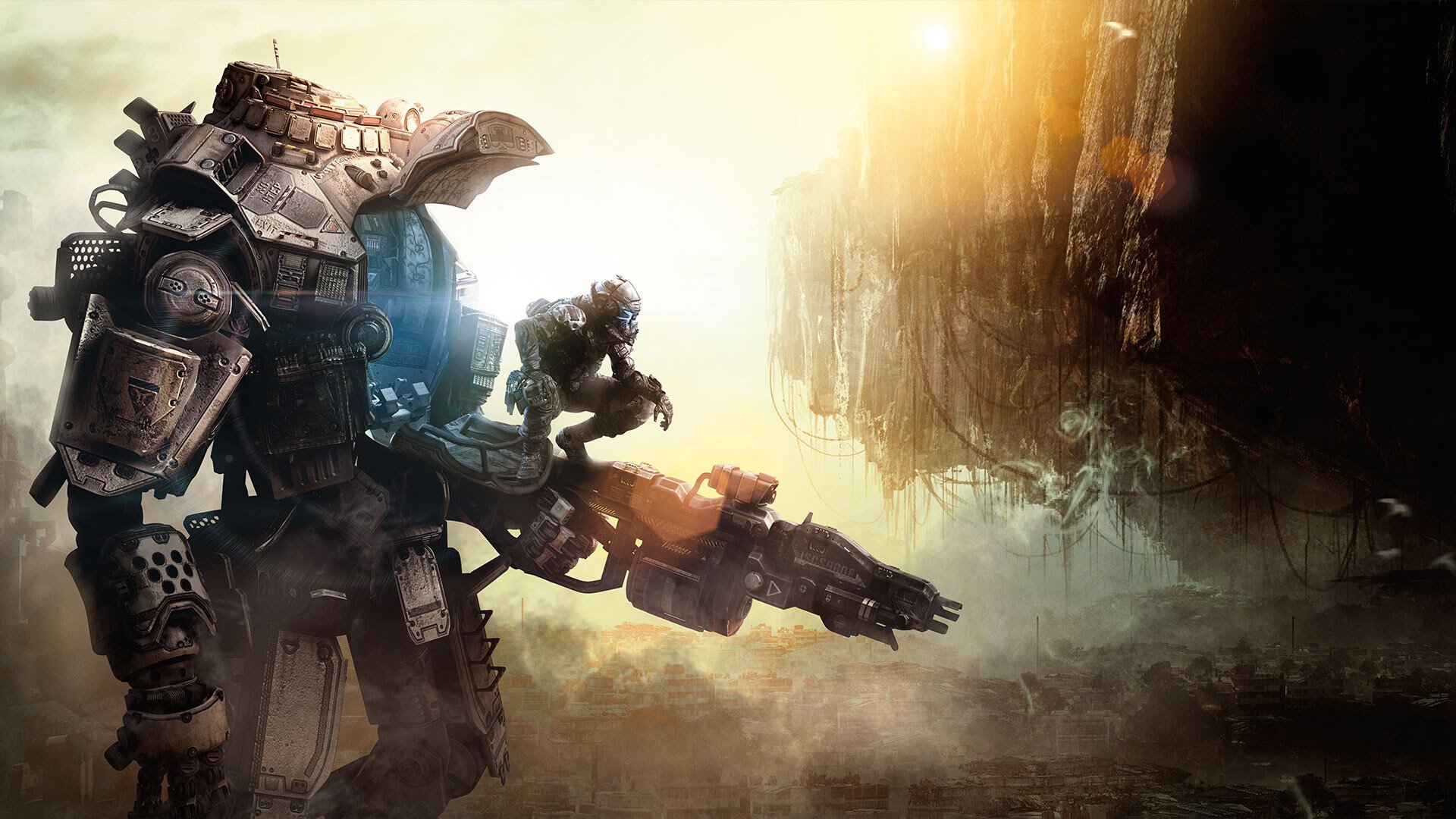



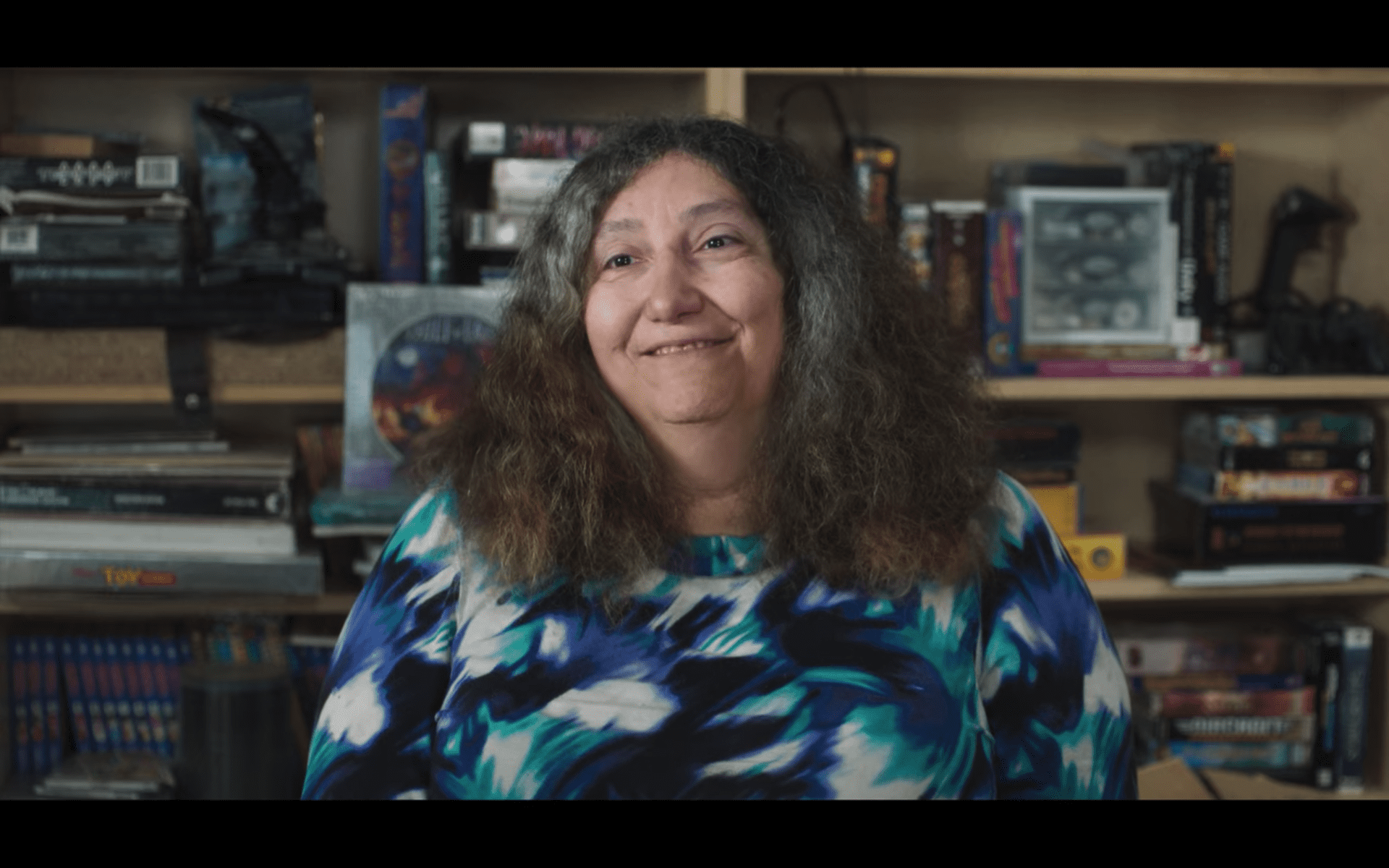
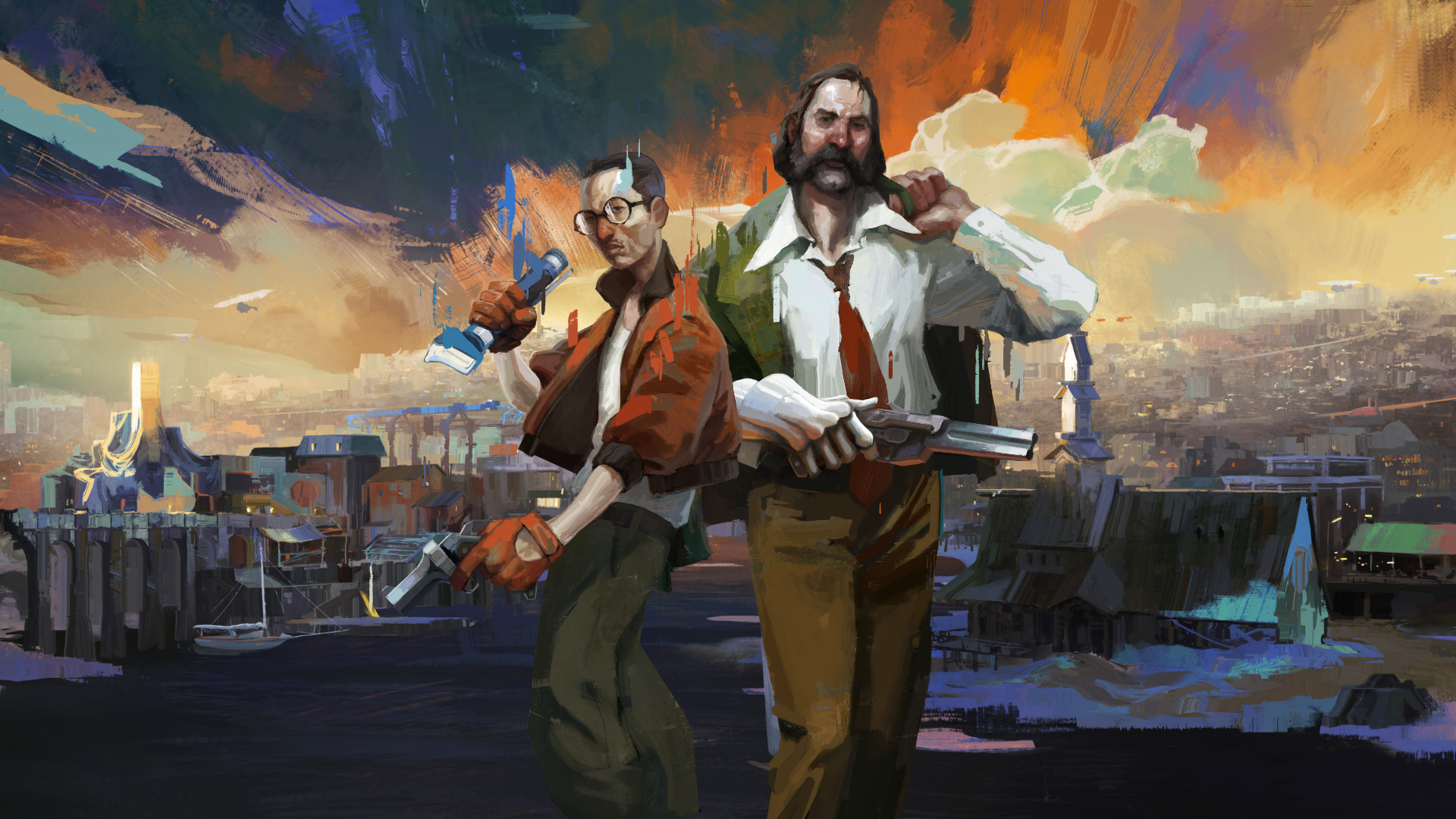

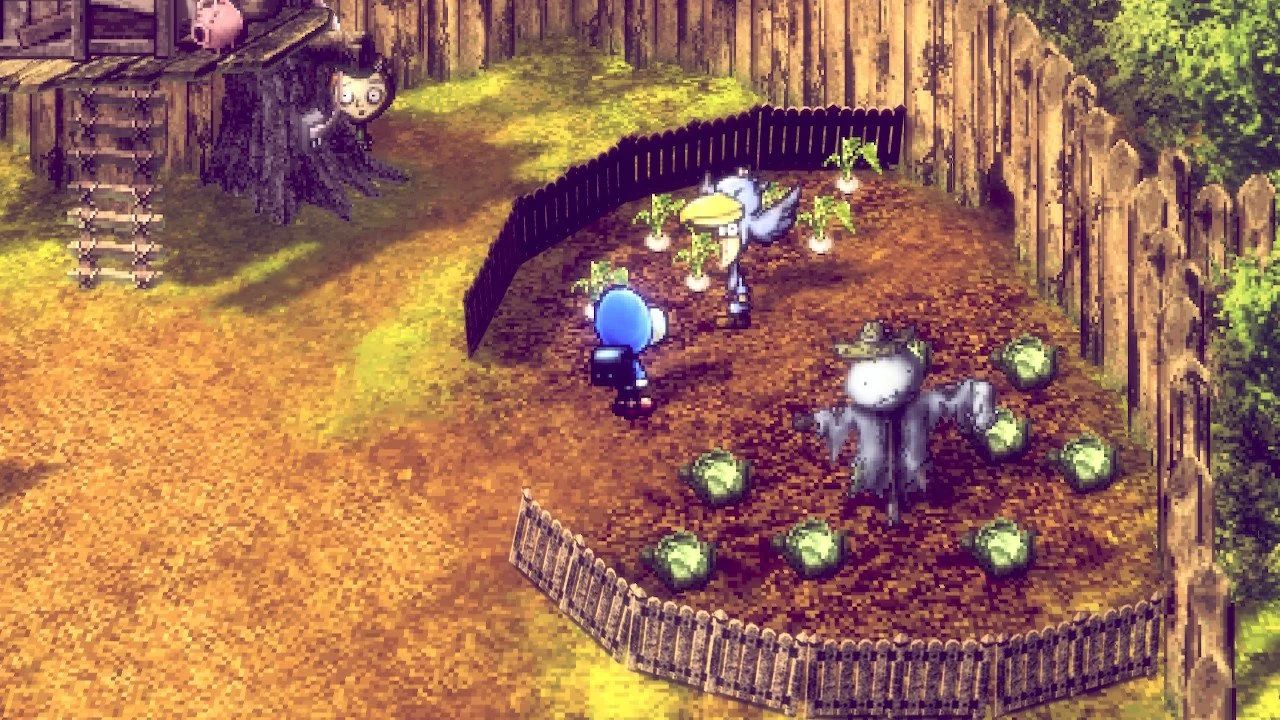

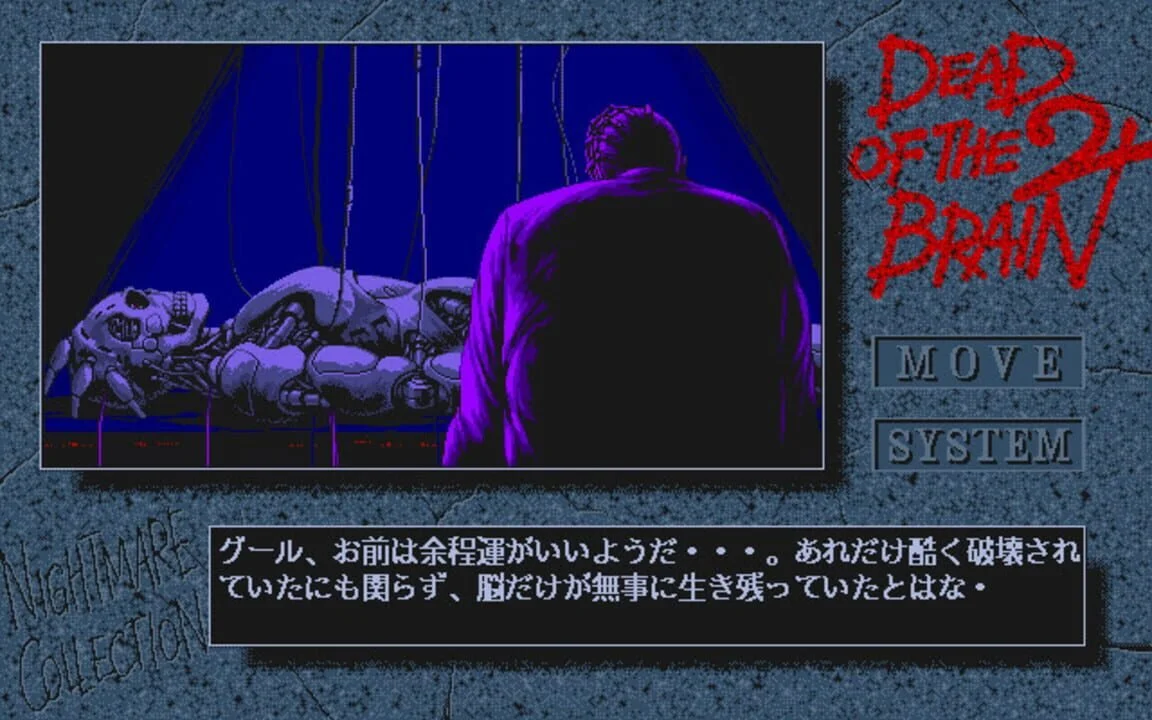
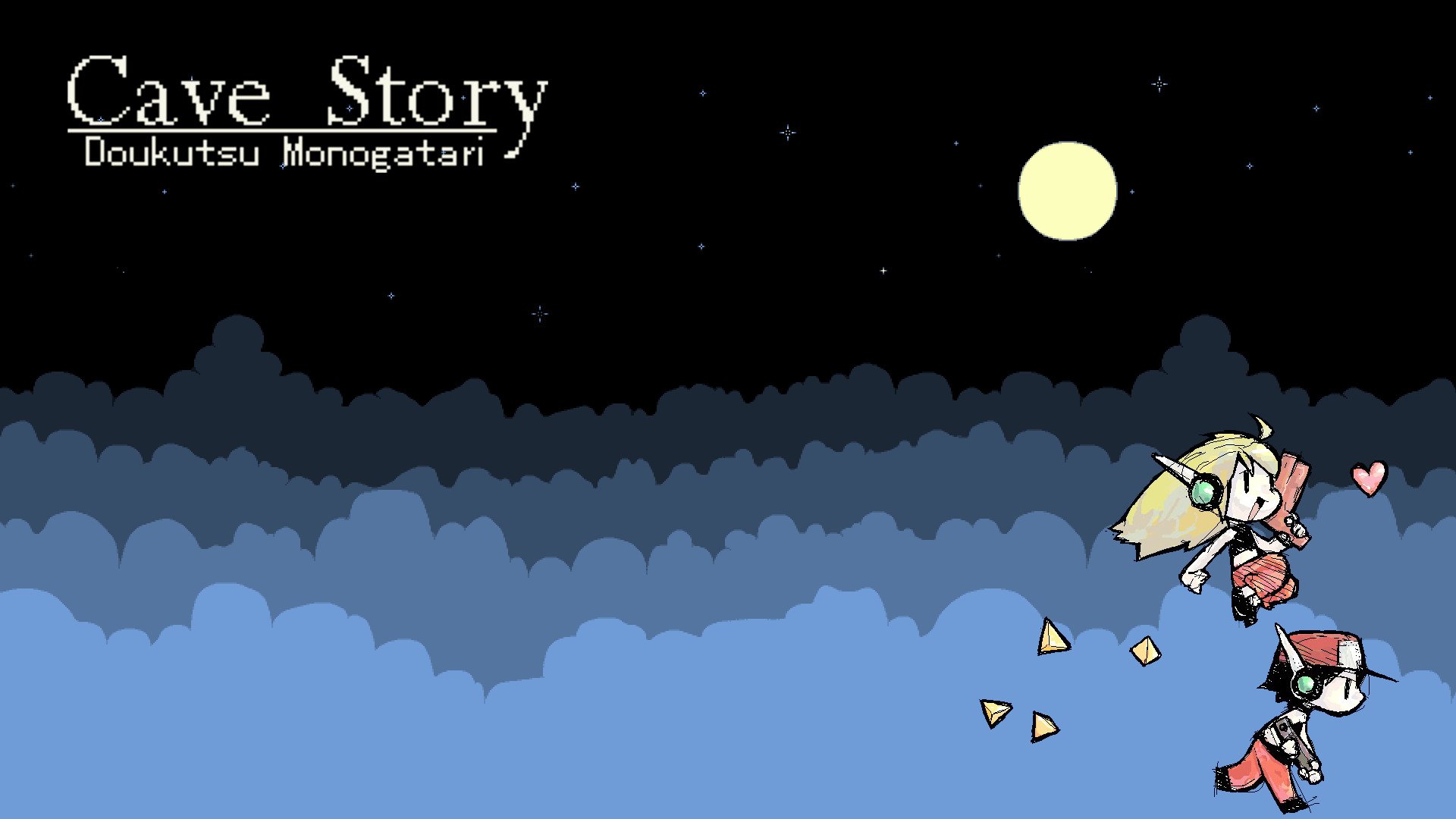

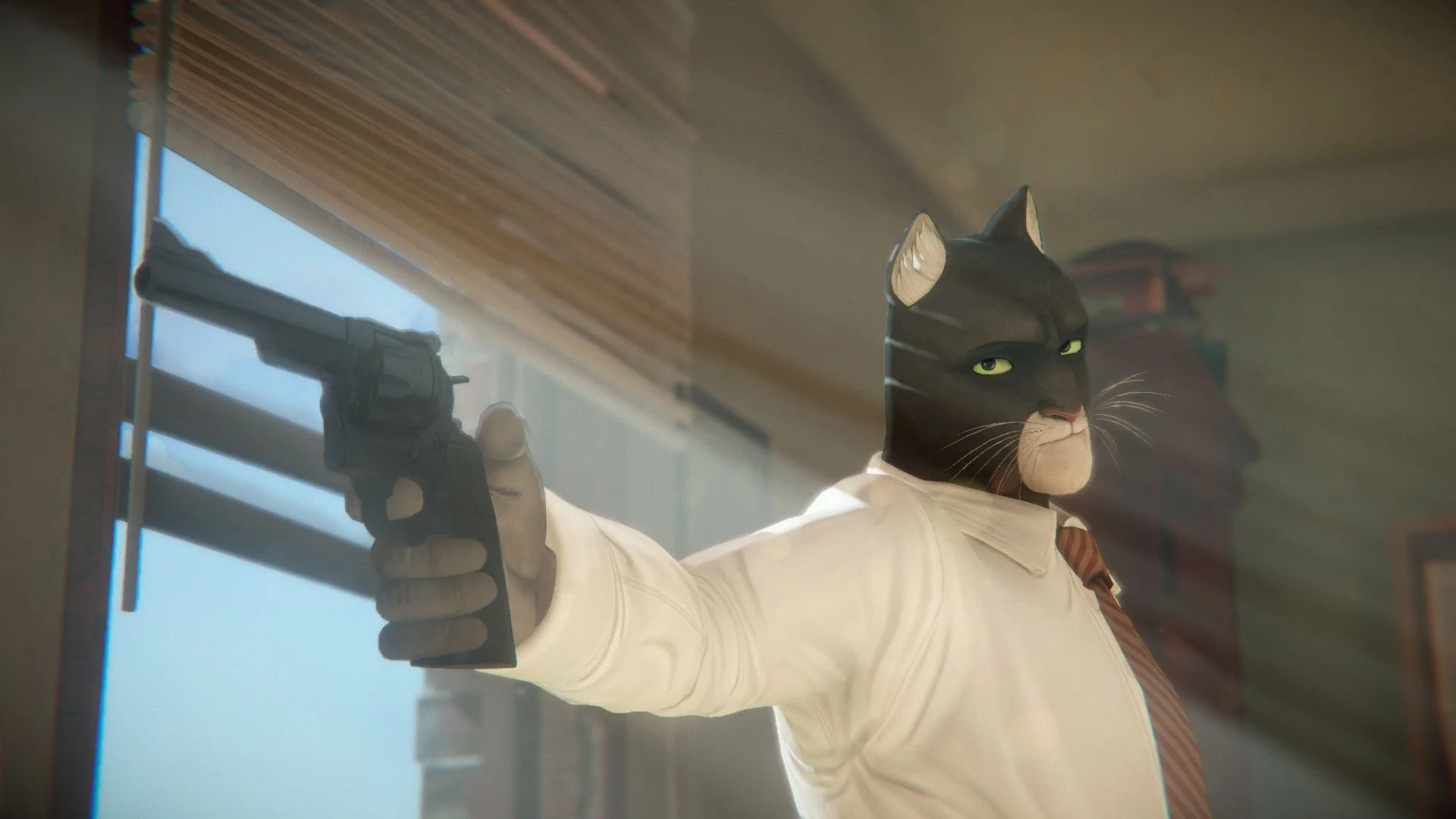
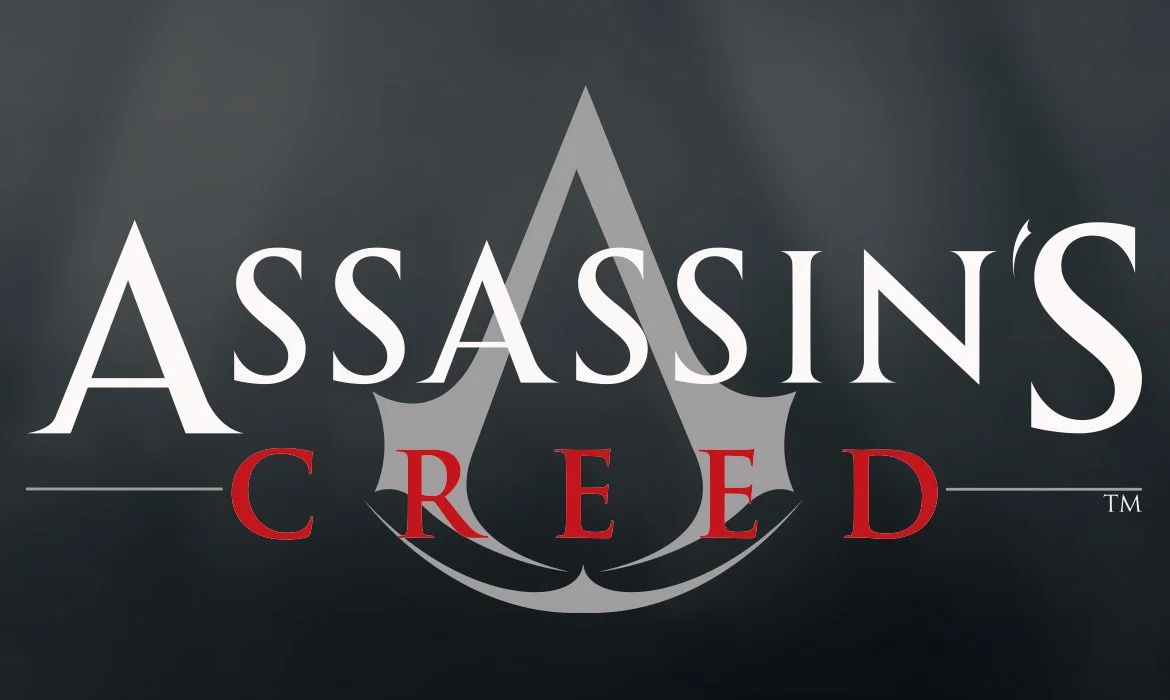
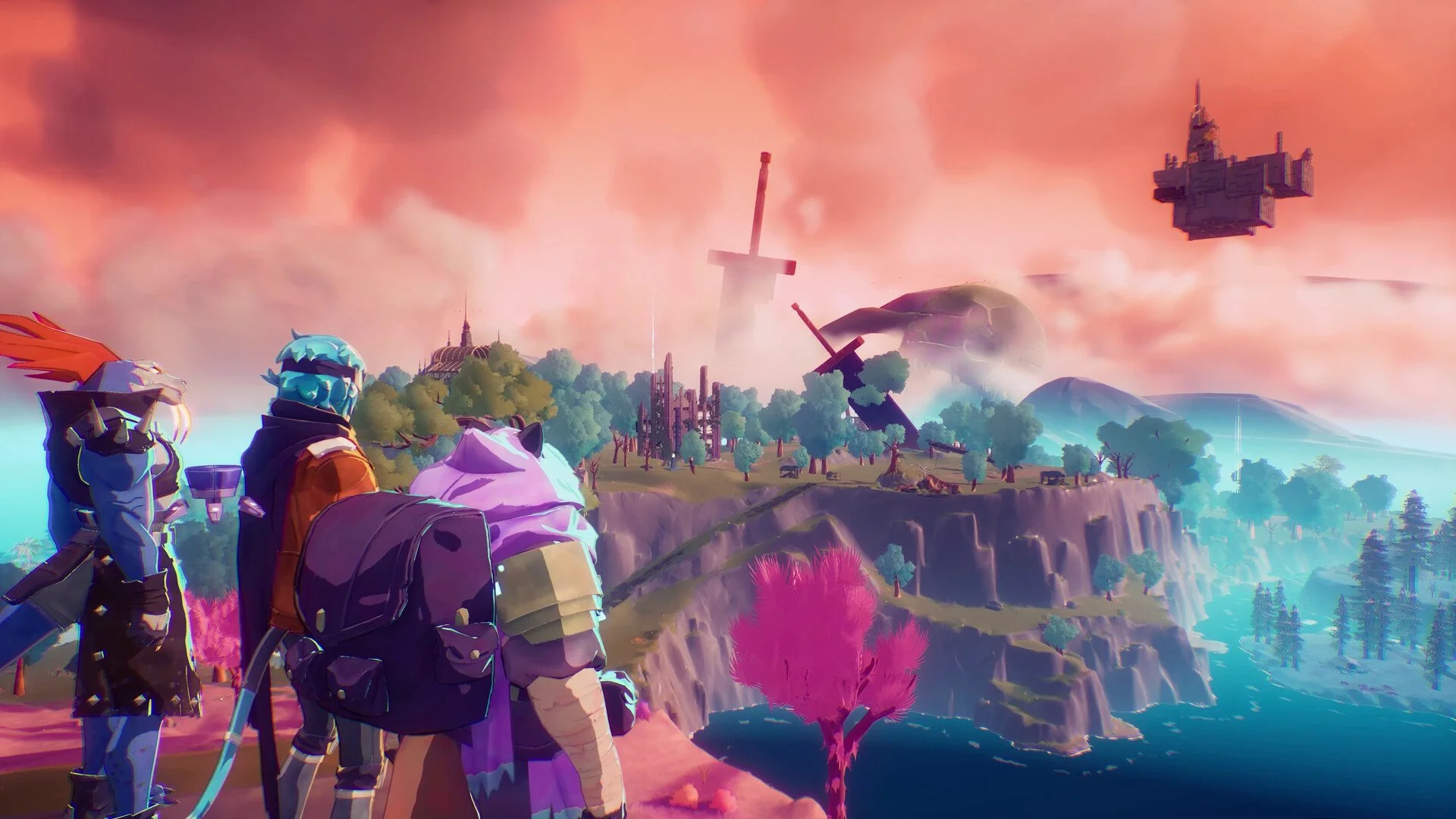
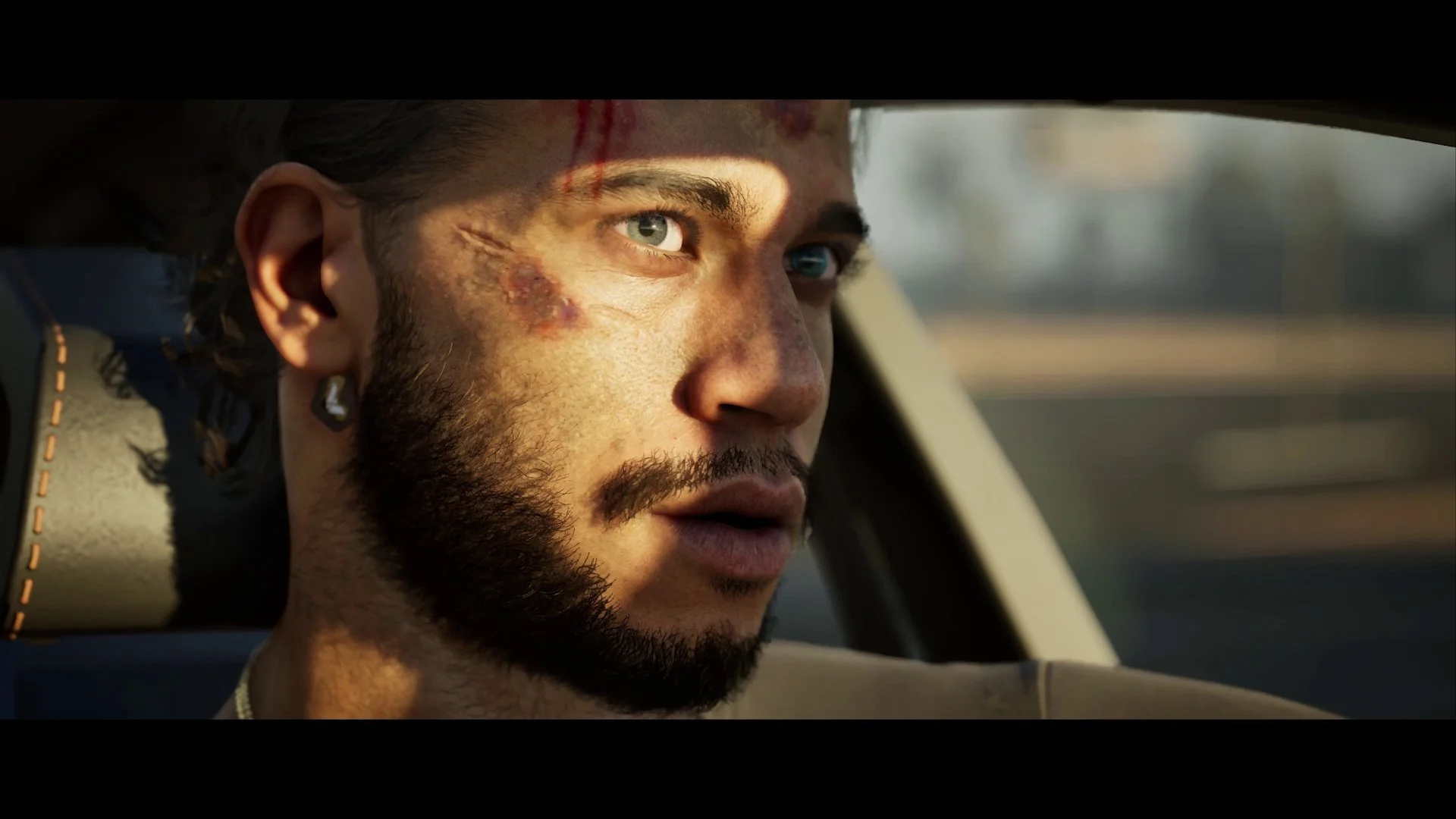



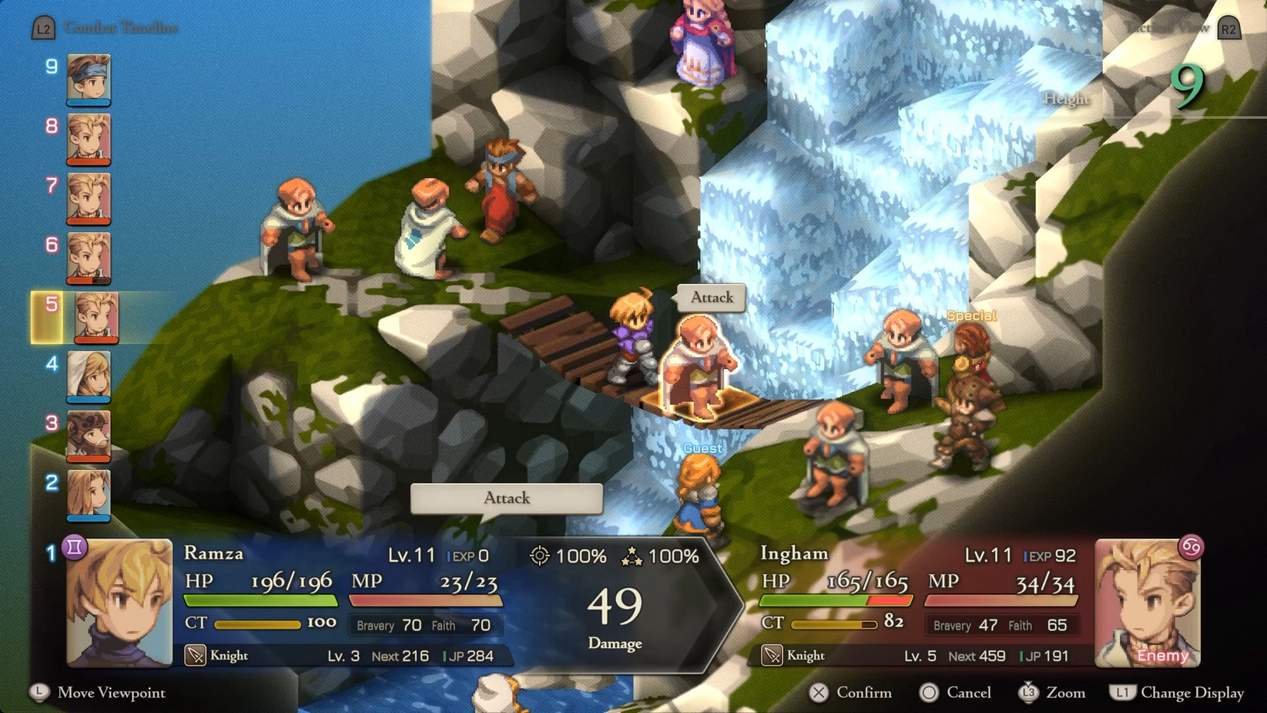


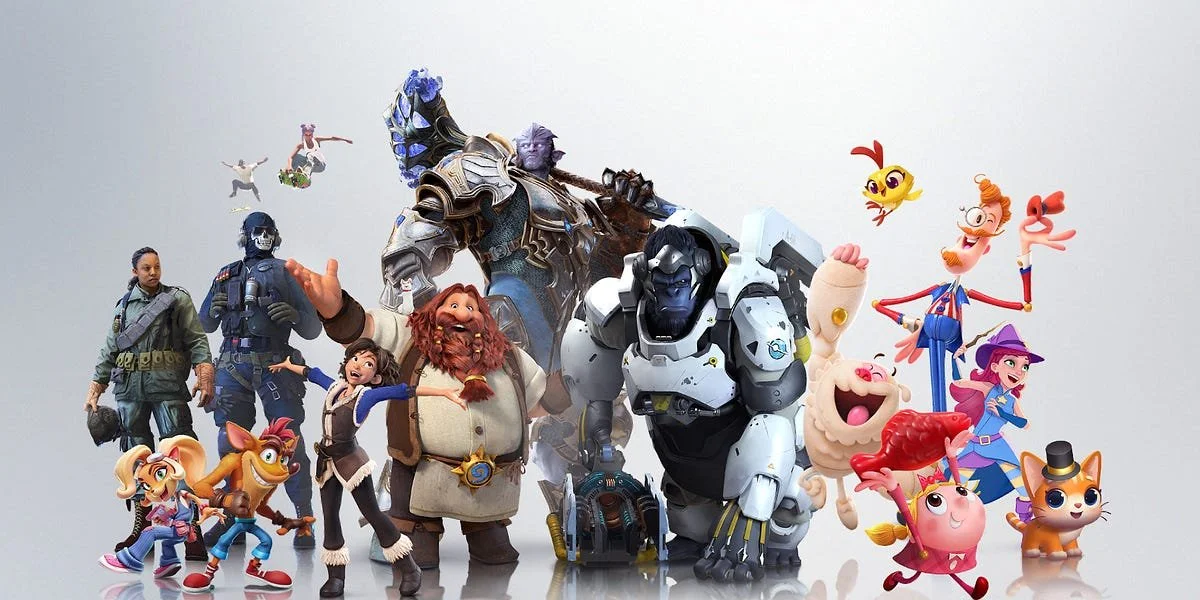




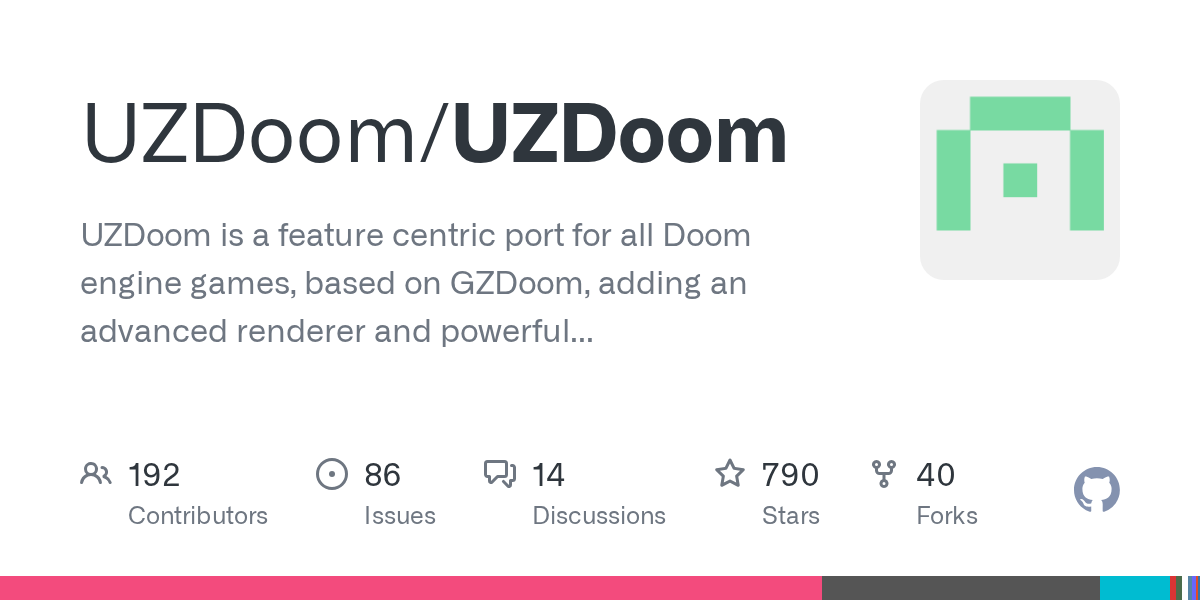
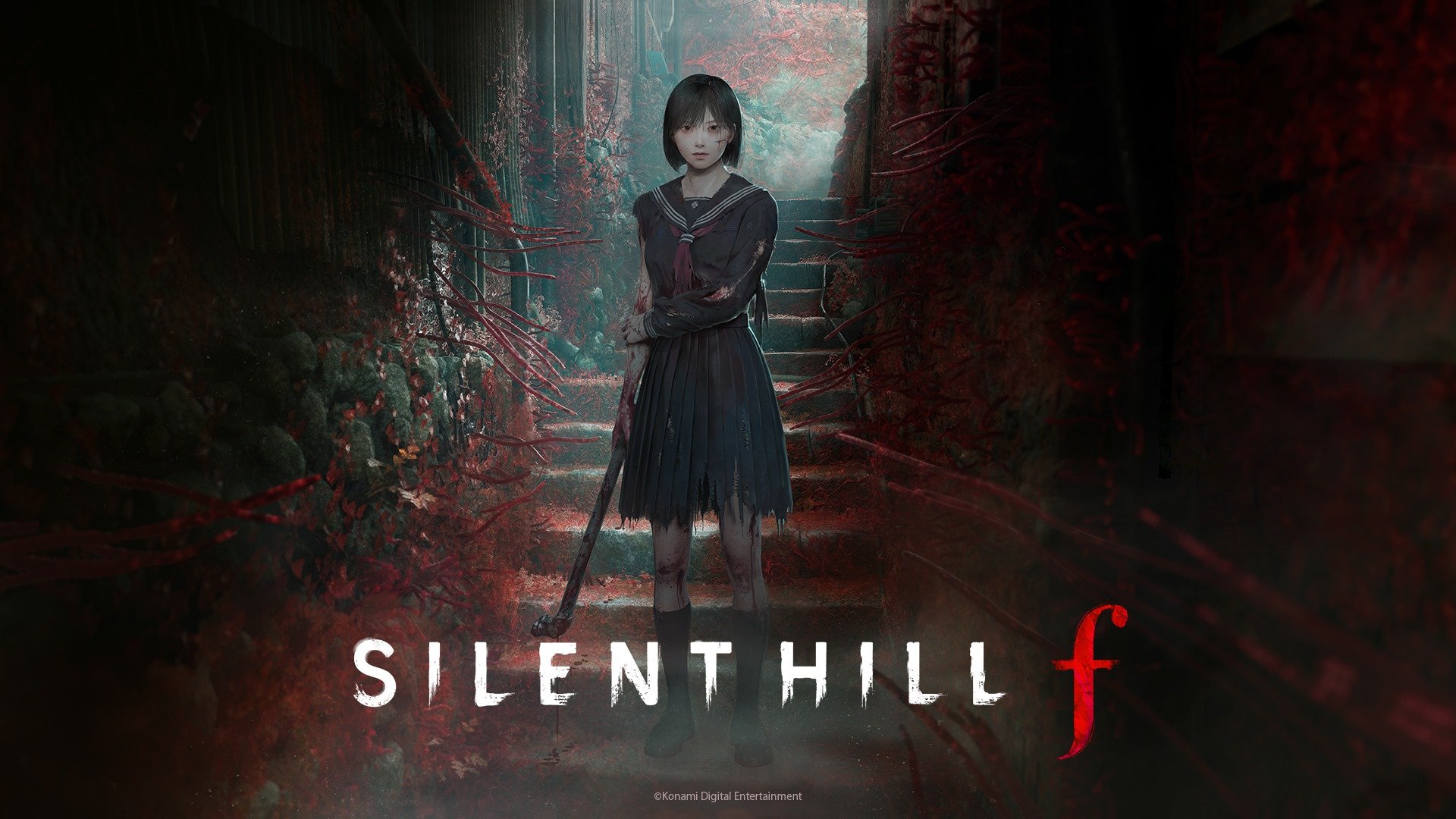


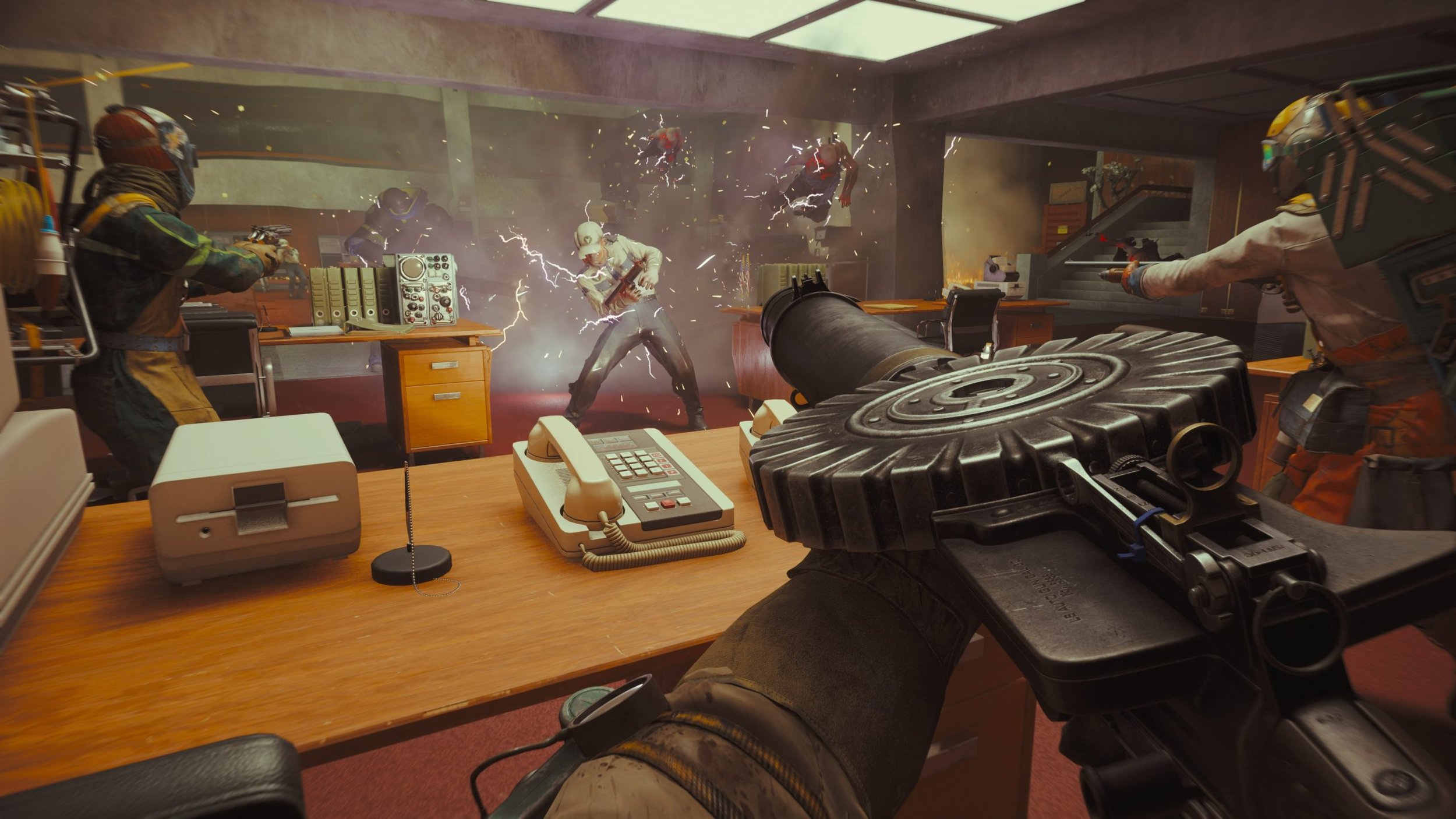



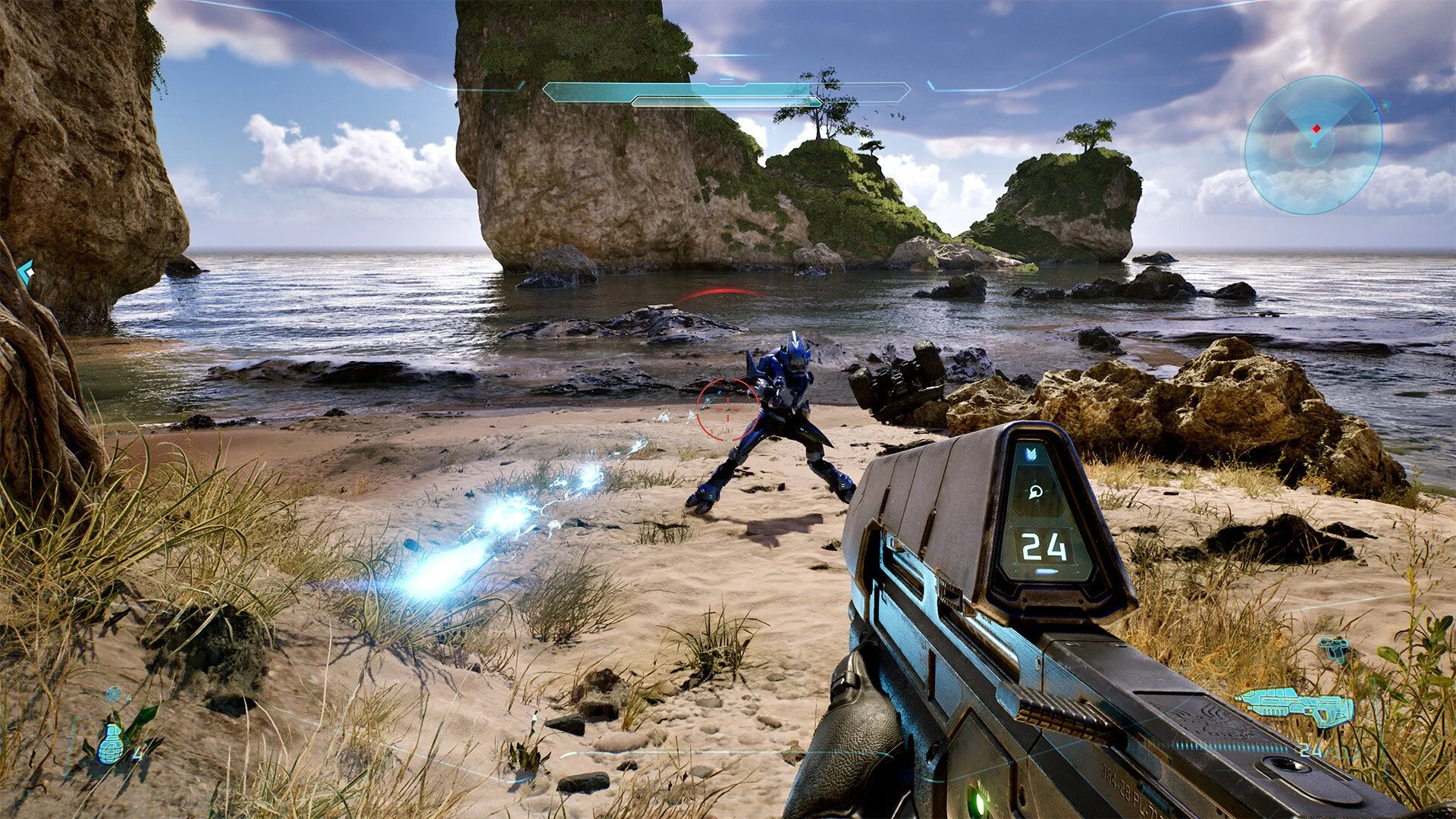
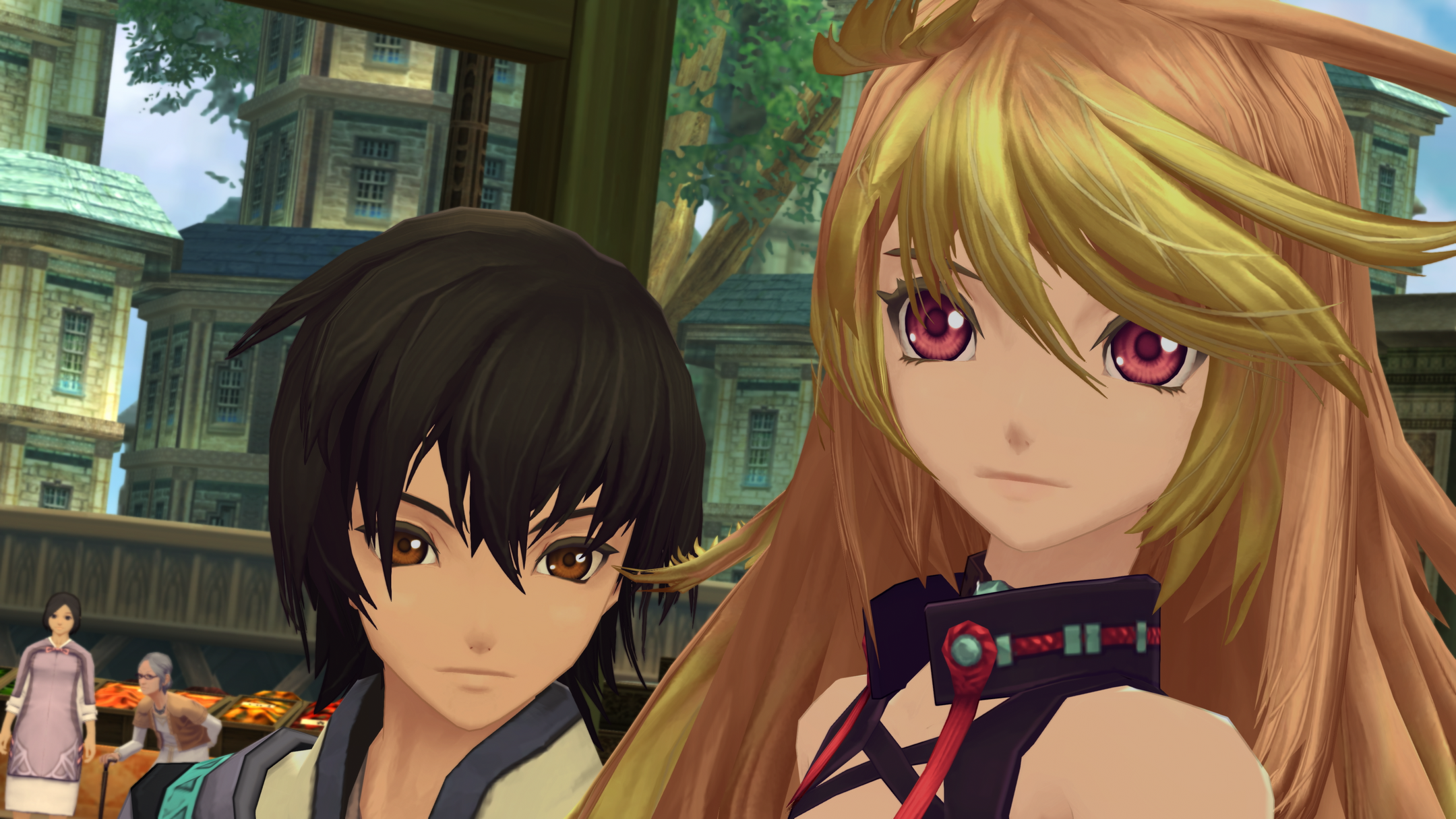





![[PATREON UNLOCK] Update Patch - October 2024](https://images.squarespace-cdn.com/content/v1/5caf2dea93a63238c9069ba4/1731253446145-098T0T6I5HRL1MLDWX1J/Update+Patch+October.jpg)
![[PATREON UNLOCK] Update Patch - December 2024](https://images.squarespace-cdn.com/content/v1/5caf2dea93a63238c9069ba4/1735860333763-SR0QWT19G28KQGVN8YCK/Update+Patch+0.jpg)
![[PATREON UNLOCK] Update Patch - June 2025](https://images.squarespace-cdn.com/content/v1/5caf2dea93a63238c9069ba4/1751704862124-POQXWBDKGLHMLQ1PEBDT/Update+Patch+Week+0.jpg)